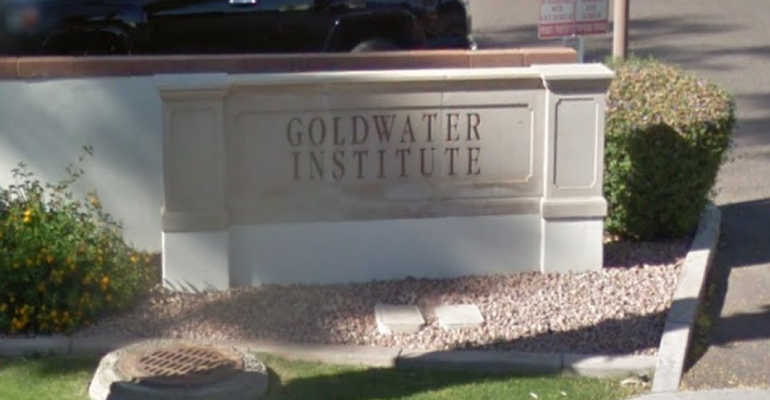
The Goldwater Institute, acting on behalf of the New Mexico-based Rio Grande Foundation, has filed a civil-rights lawsuit challenging a Santa Fe, N.M., ordinance that requires non-profit organizations to turn over confidential information about their donors whenever they spend more than $250 in supporting or opposing a ballot initiative. Arguing that the ordinance violates the fundamental rights of free speech and association protected by the First Amendment and by the New Mexico Constitution, Institute lawyers have asked a federal judge to issue an injunction blocking the city from enforcing the ordinance.
The Rio Grande Foundation, a New Mexico think tank devoted to free markets and limited government, ran afoul of city regulators when it began educating voters on what it saw as the potential harms of a proposal to impose a city-wide tax on sugared sodas and other drinks. When the Foundation posted videos on the internet explaining why it thought the tax was a bad idea, city officials ordered the Foundation to turn over the names, addresses, and even occupations of its donors. The soda tax was ultimately rejected by Santa Fe voters. The Foundation was eventually called in front of the City’s Ethics & Campaign Review Board, which conducted a mini-trial and issued a public reprimand of the Foundation.
“In the City of Santa Fe, charities and other nonprofits are required to turn their donor lists over to the government if they spend more than $250 to communicate with voters—and anyone who doesn’t comply can be fined $500 per day,” Rio Grande Foundation President Paul Gessing said.
Such severe penalties can scare individuals and public citizen groups like the Foundation away from expressing unpopular political opinions. “It is unconstitutional for the government to silence nonprofits by attacking the privacy of their donors,” said Matt Miller, senior attorney at the Goldwater Institute, who represents the Foundation in the lawsuit. “During the civil-rights struggles of the 1950s and 1960s, the Supreme Court struck down efforts by southern states to force the NAACP to disclose the identities of donors, because it saw that such tactics are an effective way to silence nonprofit groups. That’s why donor privacy is protected by the Constitution’s guarantees of free speech and association.”
The Santa Fe donor disclosure law is part of a growing trend. Laws like this one, which the City adopted in 2015, are spreading across New Mexico and the country: Albuquerque and Las Cruces have similar laws, as do states like Missouri, Delaware, Montana, and others. California’s attorney general ordered nonprofits operating in the state to turn over their donor lists, as well, prompting federal lawsuits that found that the demand violated the First Amendment.
“Donor disclosure laws like Santa Fe’s silence important voices in public debates,” Miller said. “Donors are less likely to donate if they know their names, donation amounts, and occupations might be shared with the government, and nonprofits are less likely to speak about issues that are important to them. This ultimately means that voters know less about the laws on which they’re voting.”
Gessing and Miller explained that the Goldwater Institute and the Rio Grande Foundation hope that their lawsuit will help restore and protect nonprofits’ rights to add their voices to the public debate. “No charity should be forced to turn over its donor lists just to participate in public discussion about a ballot initiative,” Miller said.
